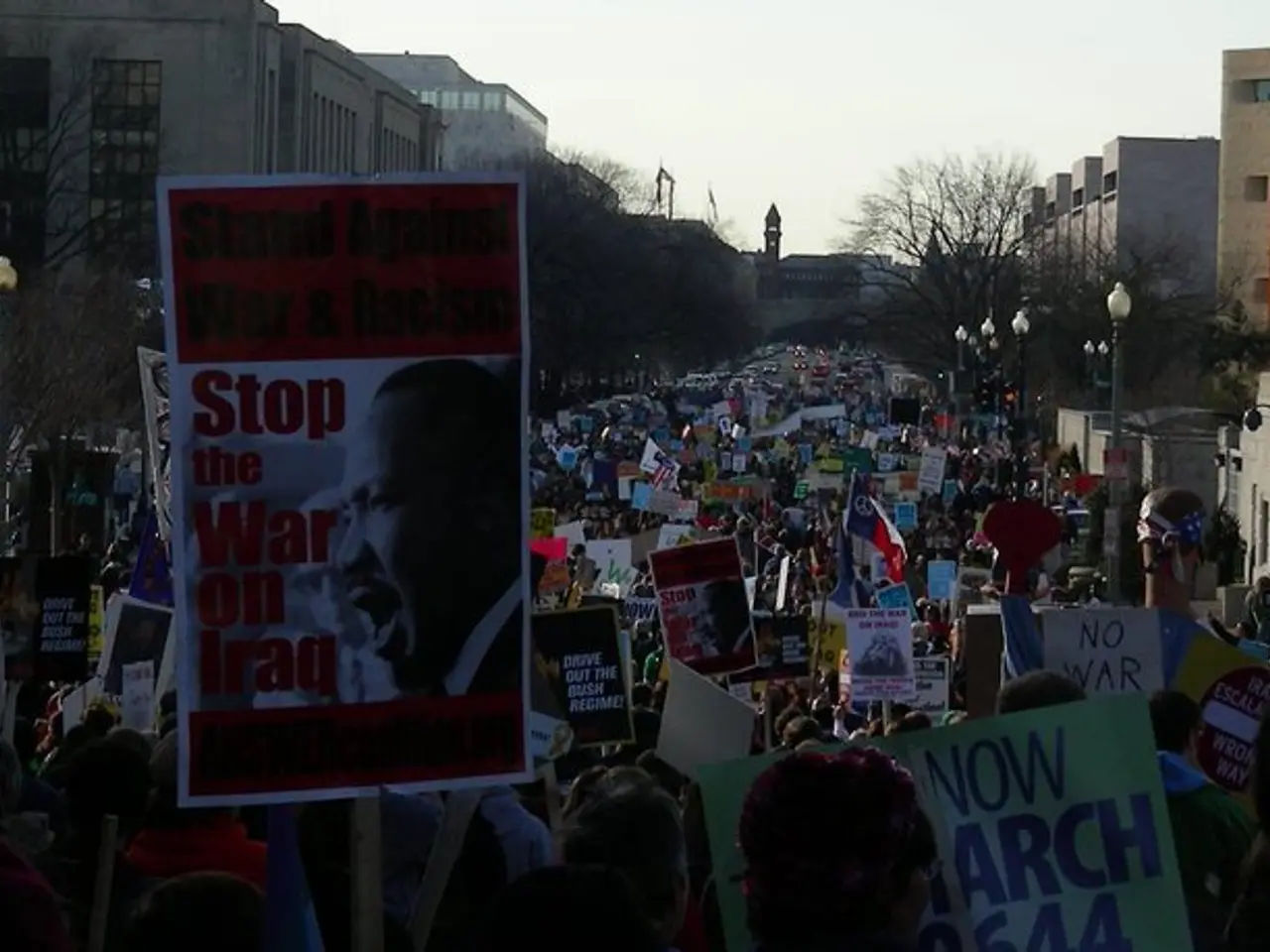Speech and Assembly Restrictions at Gaza Protests Spark Outcry in Germany
Letter from Council of Europe to Dobrindt on Free Speech in Gaza
Facebook Twitter Whatsapp E-Mail Print Copy Link **
The Council of Europe's Human Rights Commissioner, Michael O'Flaherty, has penned a letter to Germany's Interior Minister, Alexander Dobrindt, expressing concern over Berlin's handling of freedom of speech and assembly at demonstrations supporting Palestinians. O'Flaherty's letter follows reports of excessive force by police against protesters, including minors, and the use of surveillance on demonstrators and arbitrary checks.
In his correspondence, O'Flaherty urged the German government to refrain from measures that discriminate against people based on their political opinions, religion, nationality, or migration status. Furthermore, he criticized restrictions on protests in Berlin, such as the permitting of only stationary gatherings in certain instances, and the prohibition of the Arabic language and cultural symbols at demonstrations since February 2025.
Reports suggest that the restrictions have been particularly severe since October 7, 2023, following the intensification of Israel’s military operations. German authorities have suppressed pro-Palestinian demonstrations, especially in Berlin, and have banned drumming, singing, and speeches in languages other than German or English. Symbols of Palestinian solidarity, such as keffiyehs and Palestinian flags, have also been prohibited.
Police have conducted mass arrests, arbitrary detentions, and disproportionate use of force against protesters. There have also been proposals to deport activists and efforts to strip German citizenship from individuals deemed "antisemites and terror supporters." These crackdowns extend to educational institutions, where students and teachers face sanctions for showing support for Palestine.
The German government justifies these measures under the guise of combating antisemitism and terrorism, maintaining public order, and invoking "Staatsräson" (reason of state). Human rights experts and legal scholars argue, however, that these restrictions threaten fundamental rights to freedom of expression and assembly, undermining democratic debate and participation. Organizations like the European Legal Support Centre have documented more than 750 incidents since 2019 involving the repression of Palestinian solidarity activists in Germany.
Critics warn that these restrictions create a chilling effect on democratic participation, particularly in the context of Germany hosting international climate talks. The Center for International Environmental Law (CIEL) has condemned the crackdown on peaceful protests as an infringement of rights. The Council of Europe has also raised alarms about the broader restrictions on freedom of expression and assembly related to Gaza protests, calling for respect for democratic rights and caution against excessive repression.
Without question, Germany's actions warrant a closer review to ensure a balanced approach that upholds freedom of speech and assembly while safeguarding public safety. Demonstrations in support of Palestinian causes are crucial moments for expressing solidarity and sparking conversation on contentious issues. Restrictions on these freedoms not only betray the principles of democracy but also create an environment of fear and uncertainty, undercutting the very values Germany purports to uphold.
Sources: ntv.de, dpa, CIEL, European Legal Support Centre
[Let's chat more about the…] Tensions and Freedoms: Balancing Security and Dissent in Protests
- TheComplexities of Defining Freedom of Speech: Before delving further into the debate surrounding the restrictions on freedom of speech and assembly in Germany, it's essential to consider the nuances of what constitutes genuine free expression and how these concepts have evolved over time.
- Antisemitism: The Council of Europe's concerns over the state of antisemitism in Europe deserve attention, particularly in light of recent events such as the terrorist attacks targeting synagogues and boarding school children in Hanau, Germany, in February 2020. As Germany grapples with protecting freedom of speech and security concerns, it's crucial to address the rising tide of antisemitism while ensuring that countermeasures do not unfairly target religious minorities or infringe upon their rights.
- Middle East Conflicts' Impact on German Politics: Germany's history with the Middle East, as both a colonial and post-WWII power, play a significant role in shaping its relationship with Israel, Palestine, and the surrounding region. Understanding the complex history between Germany and the Middle East is key to understanding the current debates around freedom of speech and assembly at Gaza protests.
- The Council of Europe's Human Rights Commissioner, Michael O'Flaherty, has criticized Germany's employment policy, particularly in the context of Berlin's protests, for allegedly discriminating against people based on their political opinions, religion, nationality, or migration status.
- O'Flaherty's concern stems from the restrictions on protests in Berlin, such as the permitting of only stationary gatherings in certain instances, and the prohibition of the Arabic language and cultural symbols at demonstrations since February 2025, which he believes could threaten the democratic debate and participation.







